We're an affiliate
We hope you love the products we recommend! Just so you know, we may collect a share of sales or other compensation from the links on this page. Thank you if you use our links, we really appreciate it!
Solar panels and an electrical system for our DIY camper van conversion take van life from merely surviving in the vehicle to, dare we say it, living in luxury.
There’s a lot of info out there on the different types of solar panels. We think this post will help you decide which panels to buy after you digest the technical info.
We must first define our needs and priorities for the panels:
- Effective panels that work with no faults and minimal maintenance
- Cost efficient, no reason to pay more than we need to
- Long life span, as evidenced by long manufacturer warranty
- Minimally visible, maximally stealthy.. 😎
Our Favorite Flexible and Rigid Solar Panels for Van & RV
Our Favorite Flexible Solar Panel
Renogy 175 watt 12v Flexible Monocrystalline Panel
Flexible solar panels are easier to install, lighter weight, and stealthier. They are pricier at about $1.60 per watt, and about 9% larger. If we did our conversion again, we would go for these flexible panels. Reports are that flexible panels can have very short (less than 3 years) lifespans in very hot areas. This is because they can overheat since there is no airflow due to their flush mounting. In milder areas lifespan is 5-10 years. BUT, they still have a 25-year power output warranty.
(get 10% off all Renogy items with our link and promo code. Search item “175DB”)
Our Favorite Rigid Solar Panel
Hightec Solar 200 watt 12v Rigid Monocrystalline PanelCheck Hightec’s 200w panels and more options at their eBay store
Rigid solar panels are cheaper than flexible panels and may have a longer life span. Our recommendation of these panels by Hightec Solar might be off the beaten track. Their pricing is about $0.92/watt compared to about $1.30/watt from Renogy. While they are not a name brand, they have over 14,000 positive feedback on eBay (they aren’t on Amazon), and offer a 25 year warranty. We are very happy with the panels, they are sturdy and output the advertised power. The shipment arrived safely in a few days. We were stoked to come across this deal, and are happy to recommend them.
Update: Two years after purchase, and the panels are still producing strong!
Are Solar Panel “Kits” Worth It?
Many manufacturers sell Solar Panel Kits that include panel(s), a charge controller, and a couple cables.
Kits are only a better value if you actually want the components they are supplied with!
Select the right Solar Charge Controller for your panels. Check our Guide to Solar Charge Controllers →
Here’s why we don’t recommend solar panel kits:
- Solar kits rarely a meaningful discount compared to buying the components individually.
- Kits are often sold with inferior PWM Charge Controllers, compared to MPPT Charge Controllers which deliver about 10-20% more power (source). For us, that additional solar output with an MPPT Controller is worth the extra cost, since it doesn’t require any extra panels or wiring.
- The cabling included with kits is not necessary what you’ll need. The wire lengths might be wrong. The gauge and lug size of the tray cable, which connects to the battery, might not be right for your system. The cables with the kit wouldn’t have worked for us (gauge was too small)!
Are Rigid or Flexible Solar Panels Better?
Let’s educate ourselves before jumping into lists of panels to choose from!
If we could do our van conversion over again (and maybe we will.. someday), we would choose flexible solar panels. Rigid solar panels, being cheaper, are an easy choice for large fixed solar installations like a house rooftop. For a vehicle with unique installation difficulties and where every pound matters, the extra cost is worth it with cheaper/easier installation, and improved gas mileage. Comparing Renogy’s 175w rigid vs. 175w flexible panel, the flexible is about 15% more expensive.
Advantages of Flexible Solar Panels
Easier to Install – VHB tape or adhere to the roof and forget it
Lighter Weight – 6 pounds vs 26 pounds
Stealthier – can’t hurt, right?
Advantages of Rigid Solar Panels
Cheaper – compared to flexible panels, rigid are about 25% cheaper from Renogy, 40% cheaper from Hightec Solar
More efficient – rigid panels are ~9% smaller for the same wattage output
Longer life span – rigid panels get airflow underneath them, preventing overheating. Flexible panels can have very short (less than 3 years lifespans) in very hot areas. In milder areas lifespan is 5-10 years. BUT, flexible panels still have 25 year warranties
By the way, if you buy rigid panels, you’ll encounter a lot of potential ways to mount them. Check out our Guide to Mounting Solar Panels on the Camper Van where we run down the options and document our step-by-step mounting process.
Difference between Monocrystalline vs. Polycrystalline Solar Panels
Here’s the take home on this question: most high-grade panels you’ll encounter are monocyrstalline panels, and that’s probably what you’ll end up choosing.
The difference between the two is in the manufacturing process – mono panels are made from a (you guessed it!) single crystal structure of silicon, while poly panels have multiple. There is less waste in the poly manufacturing process so they are cheaper, but they perform about 15-20% less efficiently. This means a poly panel will be 15-20% larger for the same wattage output as a mono panel.
To Consider: Solar Panel Efficiency, Voltage, and Warranty
Stick with us here.. some of these product nuances can be a bit bland, but solar panels are a big purchase!
Solar panel efficiency defines a panel’s ability to convert sunlight into usable electricity. Solar panels range in efficiency from about 15-23%, and in a panel with 20 percent efficiency, 20 percent of all the light that hits it will be translated into electricity. Solar panel efficiency is determined by the production of electricity by solar cells, which is in turn influenced by the cells’ composition, electrical configuration, surrounding components, and more.
A less efficient panel can produce the same wattage as a more efficient panel, it would just need to be bigger with more solar cells.
(On a side note, you’ll need a battery monitor to get a reasonably accurate reading on how many watts your panels are we generating. We’ve got the rundown on battery monitors.)
Solar panel voltage will be fed by the panels to your charge controller, which then charges the batteries. As long as you get an adequate charge controller (MPPT, not PWM), then the controller regulates the incoming voltage from the panels to charge the batteries based on their voltage.
No need to worry about the panel voltage (most common are 12v, you will see some 24v), because the voltage has no impact on the performance.
Solar panel warranty is based on power output. Solar panels are expected to degrade over the years. The National Renewable Energy Laboratory found in a 2012 study that solar panel output falls by an average of about 0.8 percent annually. In other words, after 10 years it will produce 92 percent of the energy it did when it was new; and so on.
Manufacturers guarantee that their panels will still offer a certain percentage of their original output. Warranty periods generally range in length from 10-25 years. Renogy warrants panel output at 80% efficiency rate at year 25. Hightec and SunPower offer similar warranties.
For life span of flexible panels, be sure to purchase flexible panels coated with ETFE, as opposed to PTE. PTE will yellow and degrade much quicker. All Renogy panels are coated with ETFE (we checked with Renogy).
Best Solar Panels for Camper Van Conversion or RV
Favorite Overall: Renogy 175W Flexible Solar Panel
We think flexible is the best choice for a van, and nothing beats Renogy’s 160w panel
25 year warranty for 80% of panel’s original output
Quality made. Renogy uses ETFE coating which will stand up longer than PTE coating which cheaper panels use
Lifespans can be less than 3 years in very hot areas. Lifespans over 5-10 years in milder climates
(get 10% off with our link and promo code. Search item “175DB”)Price Per Watt: $1.62 | Weight: 6 lbs | Efficiency: 21.0% | Size: 59.2” x 26.5” (10.9 sq ft)
Favorite Rigid Panel: Hightec 200w Solar Panel
We’ve got these panels, and they’re working great after a few years
25 year warranty and good reputation in van and RV communities
Great value: about $0.92/watt compared to about $1.30/watt from most other manufacturers
More panels and bundles available on their eBay store (they aren’t on Amazon)
Rigid panels are heavier, un-aerodynamic, and more difficult to install than flexible panels
Price Per Watt: $0.93 | Weight: 28 lbs | Efficiency: 17.3% | Size: 58.7″ x 26.6″ (10.8 sq ft)
Favorite Cheap Panel: Newpowa 100w Rigid Solar Panel
Cheapest monocrystalline panel, and has a 25 year warranty!
Good feedback from owners we’ve talked to
Having multiple small panels is trickier to install and wire than one bigger panel
We’d always rather have flexible over rigid panels
Price Per Watt: $0.83 | Weight: 16 lbs | Efficiency: Not Stated (?!) | Size: 44.5″ x 19.9″ (6.2 sq ft)
Other Solar Panel Options:
Newpowa 200W Rigid Solar Panels – We’d rather buy the Hightec 200W solar panels listed above (which is why we did!). Hightec’s panel is a little cheaper, and more efficient. Newpowas had to make their panel 6 inches longer and 4 pounds heavier for the same 200W output. Newpowa also has a 175w panel but Hightec Solar’s 175w beats them too.
Renogy 100W Rigid Solar Panel – We’d choose the Newpowa 100W panels, which are cheaper with similar specs and warranty.
Ready for more info?
Visit the Van Conversion Build GuideWe sincerely hope this information is helpful on your build journey!
This post contains affiliate links that may earn us a commission if a product is purchased. But, we always strive for the reuse and repurpose of materials – so we encourage searching for a local used option before buying from our links.

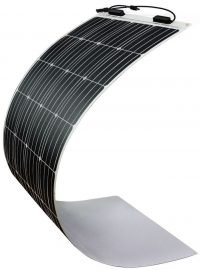
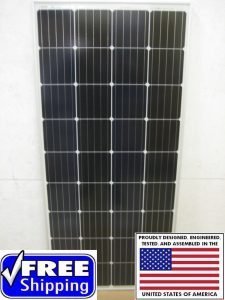
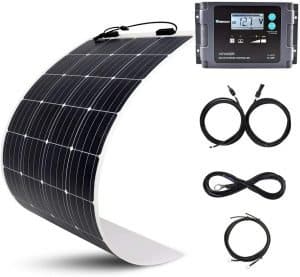
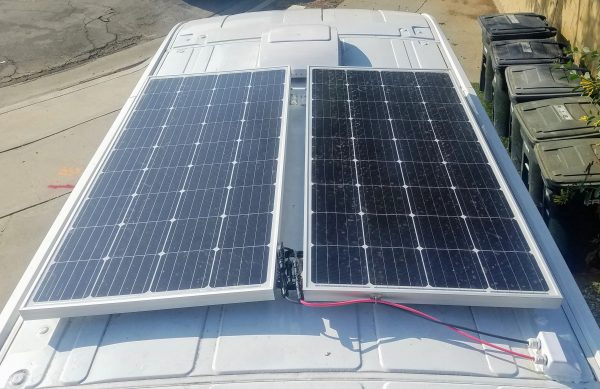
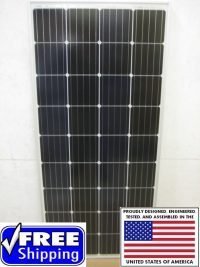
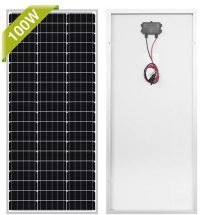
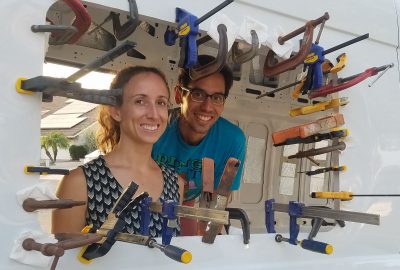
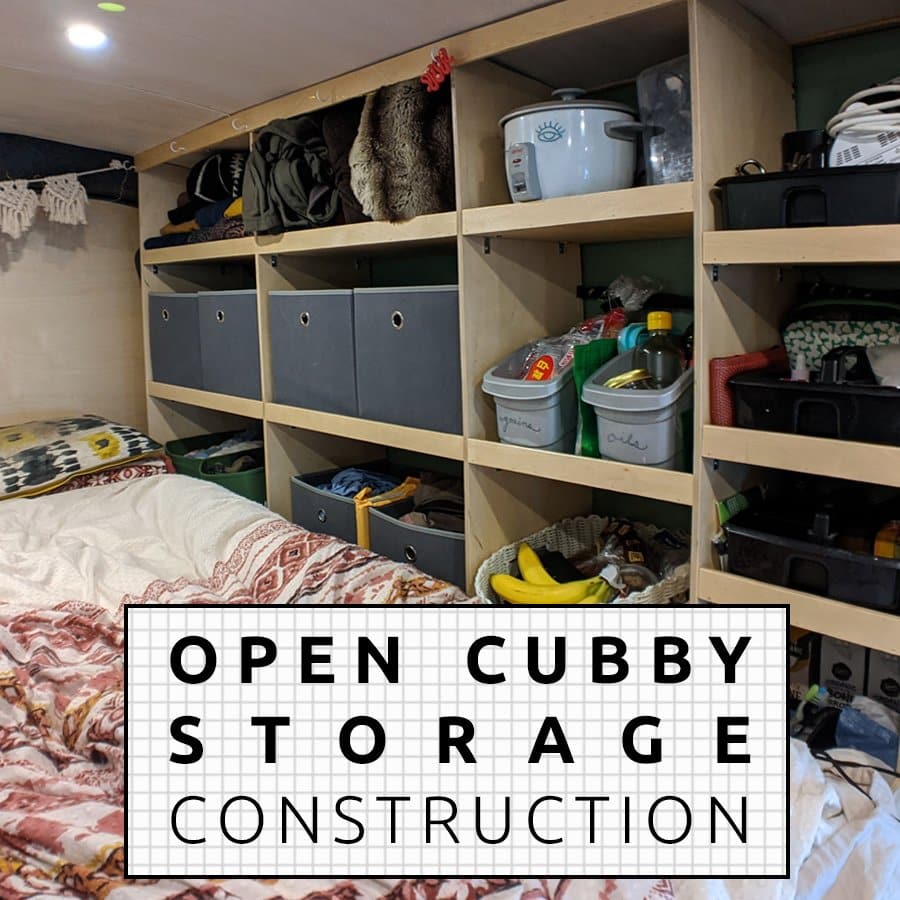
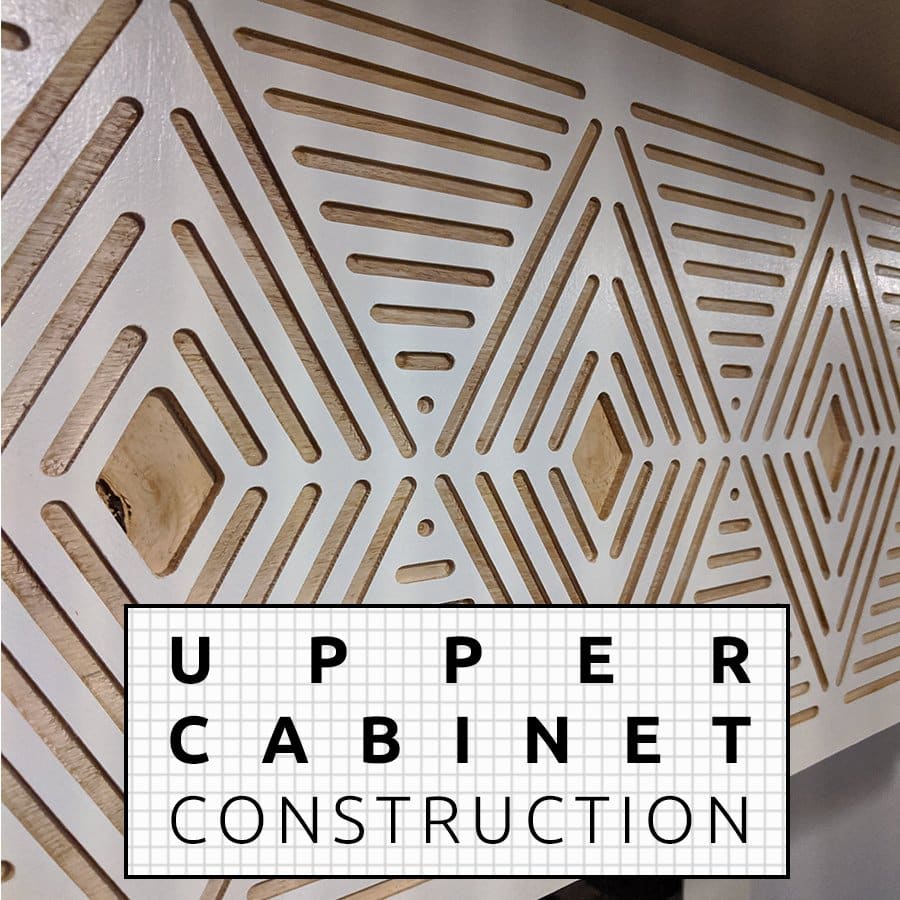
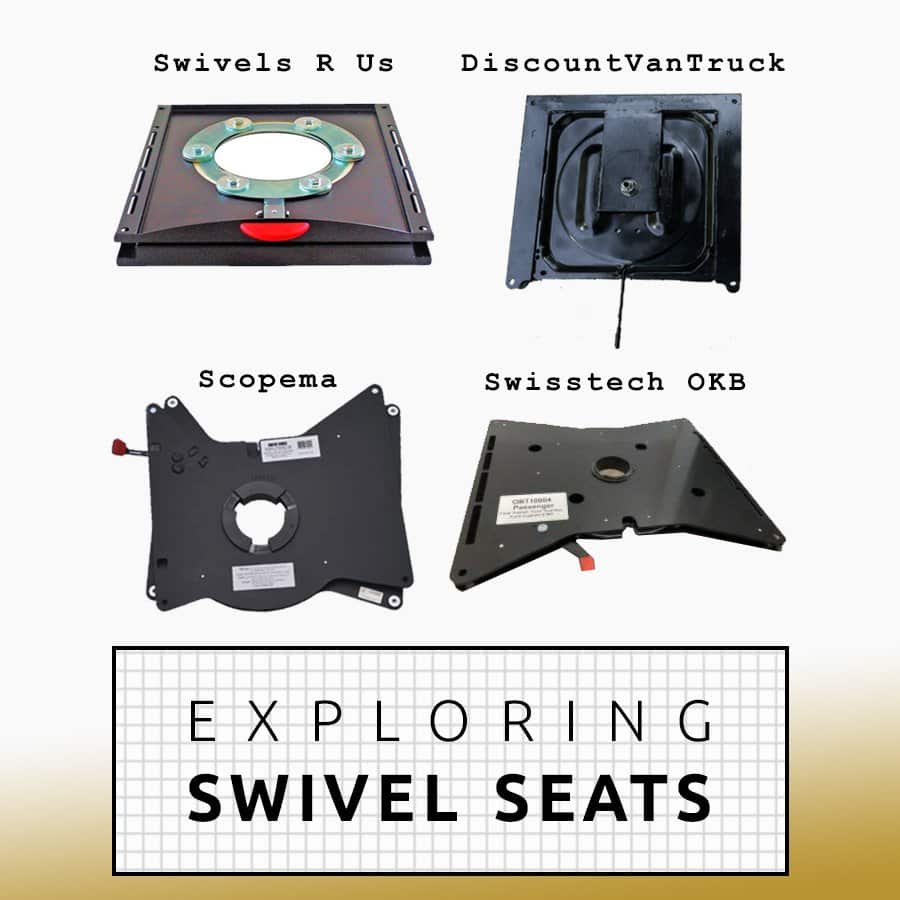

Very good honest advise.
I saved this page
I wish I could get the correct Split Charging System and Lithium Leisure Battery, and Solar Panel advise and correct Parts here in uk
I’ve six solar panels and run them in parallel. The first two I ordered had screw outstations for spade connectors. Using a 30W MPPT Demuda regulator, running an insulated cell with LED lights, 12V ceiling suckers, a 12V root pump, and a 12V refrigerator 2 times and no problems, preparing to add the 3rd panel. With two large deep cycle marine batteries and so far so good.
Thank you so much this information was certainly helpful! There are numerous other factors I need to consider when buying flexible solar panels for car roof mounts or the top of my RV.